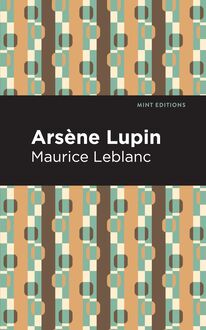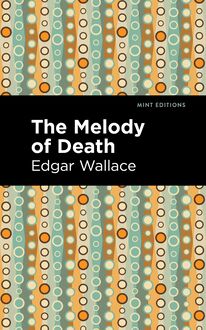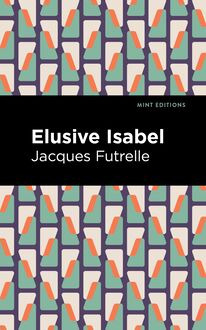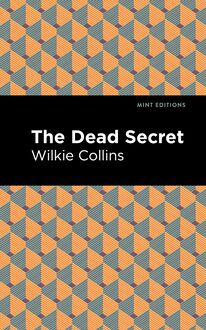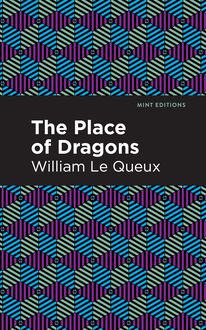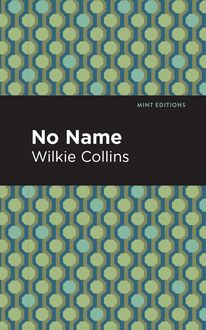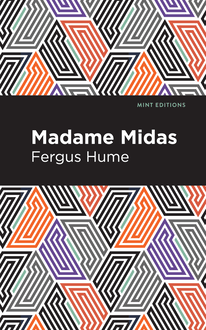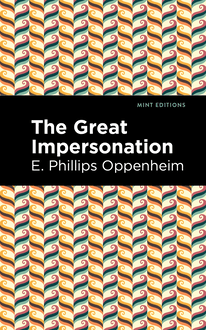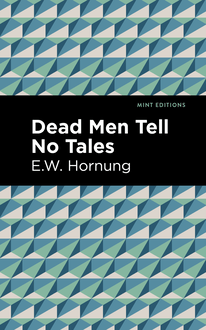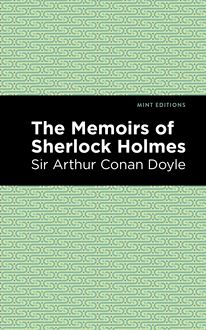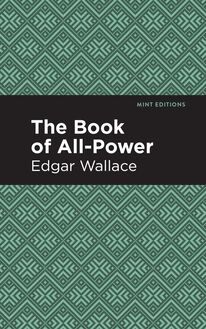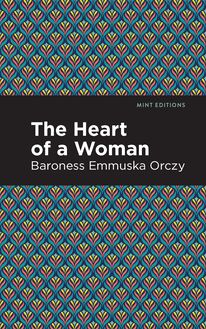-
 Univers
Univers
-
 Ebooks
Ebooks
-
 Livres audio
Livres audio
-
 Presse
Presse
-
 Podcasts
Podcasts
-
 BD
BD
-
 Documents
Documents
-
- Cours
- Révisions
- Ressources pédagogiques
- Sciences de l’éducation
- Manuels scolaires
- Langues
- Travaux de classe
- Annales de BEP
- Etudes supérieures
- Maternelle et primaire
- Fiches de lecture
- Orientation scolaire
- Méthodologie
- Corrigés de devoir
- Annales d’examens et concours
- Annales du bac
- Annales du brevet
- Rapports de stage
La lecture à portée de main
Vous pourrez modifier la taille du texte de cet ouvrage
Découvre YouScribe en t'inscrivant gratuitement
Je m'inscrisDécouvre YouScribe en t'inscrivant gratuitement
Je m'inscrisEn savoir plus
Vous pourrez modifier la taille du texte de cet ouvrage
En savoir plus

Description
The Whispering Man (1908) is a novel by Henry Kitchell Webster. Written at the height of Webster’s career as a popular author of magazine serials, The Whispering Man is a story of romance, mystery, and murder. Filled with twists and complicated motives, The Whispering Man remains an underappreciated whodunnit over a century after it appeared in print. “It is strange that we should have been talking about Dr. Marshall that very night, I and my new friend and neighbor, across our little table in the restaurant. Talking about him we were, and at considerable length, too, before I bought the paper that had the news of his death in it.” Out to dinner with his friend Arthur Jeffrey, a painter, Drew learns of the death of Dr. Roscoe Marshall, a prominent alienist, from natural causes. Only moments before, they had been discussing Marshall’s work in relation to Drew’s expertise in legal evidence, to which Jeffrey had responded by detailing his portrait work for Marshall’s wife. As it turns out, Madeline Marshall, née Cartwright, is a former love interest of Drew’s, and the discussion has loosened a painful memory within him. Shocked by the news of the doctor’s death, Drew looks across the dining room to find Marshall’s son, who has come at his mother’s request. In the cab back to their apartment, the young man has one word on his lips: murder. With a beautifully designed cover and a professionally typeset manuscript, this edition of Henry Kitchell Webster’s The Whispering Man is a classic of American mystery fiction reimagined for modern readers.
Sujets
Informations
| Publié par | Mint Editions |
| Date de parution | 03 août 2021 |
| Nombre de lectures | 0 |
| EAN13 | 9781513288574 |
| Langue | English |
| Poids de l'ouvrage | 2 Mo |
Informations légales : prix de location à la page 0,0450€. Cette information est donnée uniquement à titre indicatif conformément à la législation en vigueur.
Extrait
The Whispering Man
Henry Kitchell Webster
The Whispering Man was first published in 1908.
This edition published by Mint Editions 2021.
ISBN 9781513283555 | E-ISBN 9781513288574
Published by Mint Editions®
minteditionbooks.com
Publishing Director: Jennifer Newens
Design & Production: Rachel Lopez Metzger
Project Manager: Micaela Clark
Typesetting: Westchester Publishing Services
C ONTENTS I. N OT IN THE P APERS II. M ADELINE III. T HE T HEORY OF THE P OLICE IV. C ARLTON S TANCLIFFE V. A Q UESTION OF M INUTES VI. D R . A RMSTRONG T ESTIFIES VII. T HE B ALANCE OF P ROBABILITY VIII. W HAT J ACK M ARSHALL K NEW IX. T HE L AST P ATIENT X. M R . S TANCLIFFE’S T RAP XI. T EN M INUTES L EFT XII. A N I MPOSSIBLE C ERTAINTY XIII. J EFFREY S MOKES A P IPE XIV. A ND T RIES AN E XPERIMENT XV. M R . S TANCLIFFE B IDS U S G OOD E VENING XVI. J EFFREY E XPLAINS XVII. T HE S TORY IS T OLD
I
N OT IN THE P APERS
It is strange that we should have been talking about Dr. Marshall that very night, I and my new friend and neighbor, across our little table in the restaurant. Talking about him we were, and at considerable length, too, before I bought the paper that had the news of his death in it. But, after all, it had come about naturally enough.
Jeffrey and I had made friends, I think, for the simple reason that we were about as unlike as any two moderately intelligent and successful young men could be. Well, there is no use stretching my own modesty to cover Jeffrey’s position, too. He at least was more than moderately successful in his vocation, which was that of a painter. As to intelligence, it was a discussion of that very subject which had led to the introduction of Dr. Marshall’s name.
Arthur Jeffrey was an illustrious monument to the deceitfulness of appearances. He looked like a rising young stock broker. Except among people whom he could really call his friends, he made no impression, and aimed to make none, except that of a brisk, alert, well-mannered, perfectly dressed young man, whose habitat for seven hours of the day was, no doubt, somewhere below Chambers Street. I think it would have been hard to induce the desk clerk at the fashionable apartment building off Madison Square, where we both lived, to believe that Jeffrey, when he emerged from the elevator so promptly at half past eight every morning, went uptown, instead of down, to a big barnlike studio, where he painted pictures whose queerness and daring were making him the talk of New York.
But, if he was all commonplace on the outside, he was pure genius within. I have never known a man who so deliberately and consciously abandoned the faculties of logic and reason, which he nevertheless possessed in a high degree, in favor of the more hazardous flight of fancy.
I suppose it was because he discovered no streak at all of genius in me that he took a fancy to me. What reputation I may have attained for myself as a lawyer and as the author of a large calf-bound text-book on evidence, has come to me through the exercise of the very faculty, to which my friend was fond of alluding in terms of such contempt, the faculty of thinking straight and consecutively.
It seems he had heard, possibly from myself, though I am inclined to doubt it, of this textbook of mine on evidence, and some unaccountable freak had induced him to buy and read it.
During the hour we had sat there over our dinner, he had amused himself and me by attacking, with a wealth of audacious paradox, one after another of the principles of evidence which my book contained. They were not, for the most part, principles which I had formulated myself; many of them were as old as the common law, but the most venerable of them all was none the safer, on that account, from my friend’s attack.
“What does the best evidence in the world amount to, anyway, when it comes to that?” he concluded. “It’s utterly meaningless, except when it’s tied on behind some theory, like the tail on a kite. As for expert testimony, there’s only one kind of true expert, and he is just an inspired guesser, no more, no less.”
“Come,” said I, “take, for instance, Dr. Roscoe Marshall, who is, perhaps, the leading alienist in the United States. He has probably taken the stand as an expert in more insanity cases than any other man. Well, go and buy his book and read it—his book on mental and nervous diseases. You’ll find it more interesting than mine. And see how much guesswork you think there is about that—Why, what’s the matter with you? What are you chuckling about?” For my friend sat there, enjoying a silent laugh all to himself, as if what I had just said had been something exquisitely amusing.
“Drew,” he said at last, “never argue with a man who always has the luck on his side. You are delivered straight into my hands by your own illustration.”
“I don’t see how,” said I.
“No, but you will. Listen. I painted a portrait of Mrs. Marshall this spring. She’s a great beauty, by the way. She must be at least twenty-five years younger than her husband. Did you ever see her?”
“Yes,” said I. “I know her rather well. She’s his second wife.”
“Well, that has nothing to do with the point. Marshall liked the picture a lot, so much that he offered to pay me more than the price I had agreed to paint it for. Of course I wouldn’t take that, but I asked him a favor instead. I wanted some casts made of his hands. He has the finest hands I ever saw. He finally assented, and I’ve got them up at the studio now. I’ll show them to you some time. Well, that has nothing to do with the point, either. The advantage of not pretending to be logical is, that you can wander around as much as you like.
“Anyway, that’s how it happens that I was talking to this famous expert of yours only this morning.
“I had happened to tell him once that I believed that I always knew a criminal when I saw one, without knowing how or why—by just looking at him. He didn’t scout that theory as you would if I were to give you the chance. He said he could recognize an insane man in the same way. He said that only the other day a man came into his office to consult him about some little nervous affection he had. The man’s manner was quiet, composed, to the normal eye perfectly normal, but he knew, just by looking at him, that the man was mad—mad as a March hare. In a year, or less, he was willing to stake his professional reputation, that man would turn into an out-and-out lunatic. The queer part of it was, he said, this patient was a doctor himself, and he, obviously, never dreamed of his condition.”
“That’s a rather grisly idea,” I commented. “But what’s that you say about yourself: that you can spot a criminal in the same way, just by looking at him?”
“Oh, I shan’t attempt to make you believe it,” said Jeffrey easily; “yet, if it weren’t against my principles, I could offer some evidence to prove it.”
“Waive the principles without prejudice,” said I, “and give me an instance.”
“Did you know that I was once a newspaper artist?” he asked me. “Of course I came out strong at murder trials and such places, where the staff photographers couldn’t get in. In that famous Marshbank’s trial—do you remember it?—I attended every session of court, and I knew who the real criminal was from the first moment. If I had been the judge, instead of bothering to select a jury composed of the twelve stupidest men in the city, I should simply have pointed out the respectable gentleman, who was the star witness for the State, and said, ‘Take him out and electrocute him,’ and that would have been the end of it. It wouldn’t have taken ten minutes. It came to the same thing in the end, but it took two years to do it, and wrecked an innocent man’s life in the bargain.”
“And you believed all the while,” I repeated incredulously, “that McWilliams was the man?”
“Not believed; knew. Oh, I don’t know how. That’s the whole point. That’s what I’ve been preaching all the evening. The only certain knowledge is the inspired guess.”
There wasn’t much room for argument with a man who took that position, and I was glad when the arrival of a small newsboy crying the eight o’clock extras in the street outside afforded an opportunity to change the subject. It was a warm evening, toward the latter part of May, and the doors were open, so I called him in.
“We’ll get down to something important,” I explained as I did so. “We’ll see how the baseball game’s come out.”
But the black headlines that caught my eye had nothing to do with our great national game. I was conscious, while I stared at them, of a queer sensation, that might almost be called a presentiment.
“That’s rather curious, considering,” said I, handing the paper over to him.
For the item of news I had read there, which tried to make up by the size and blackness of its type for the meagerness of detail which it afforded, was that Dr. Roscoe Marshall, the famous alienist and specialist in nervous diseases, had been found dead in his office chair at half past twelve o’clock that afternoon.
We made some pretense at reading the rest of the news, and talking about indifferent subjects, but neither my mind nor his succeeded in getting very far away from the main theme.
Finally, after a little silence, I remarked: “There is this to be said of him, he was absolutely on the square. Nobody in the world had money enough to get him to cut an opinion to fit the brief. There are precious few experts who won’t do that. The State Attorney’s office will miss him.”
“Well,” said Jeffrey, “I am glad I’ve got those casts of his hands. They are both distinguished, the right and the left one. I never saw such a pair.”
It occurred then to both of us, I think, that we were treating the memory of an illustrious citizen rather inadequately.
“Of course,” said Jeffrey, “I knew him very little. You knew him rather well, didn’t you?”
“On the contrary, not well at all. I know her—knew her, I should say, as I’ve hardly seen her since she married
-
 Univers
Univers
-
 Ebooks
Ebooks
-
 Livres audio
Livres audio
-
 Presse
Presse
-
 Podcasts
Podcasts
-
 BD
BD
-
 Documents
Documents
-
Jeunesse
-
Littérature
-
Ressources professionnelles
-
Santé et bien-être
-
Savoirs
-
Education
-
Loisirs et hobbies
-
Art, musique et cinéma
-
Actualité et débat de société
-
Jeunesse
-
Littérature
-
Ressources professionnelles
-
Santé et bien-être
-
Savoirs
-
Education
-
Loisirs et hobbies
-
Art, musique et cinéma
-
Actualité et débat de société
-
Actualités
-
Lifestyle
-
Presse jeunesse
-
Presse professionnelle
-
Pratique
-
Presse sportive
-
Presse internationale
-
Culture & Médias
-
Action et Aventures
-
Science-fiction et Fantasy
-
Société
-
Jeunesse
-
Littérature
-
Ressources professionnelles
-
Santé et bien-être
-
Savoirs
-
Education
-
Loisirs et hobbies
-
Art, musique et cinéma
-
Actualité et débat de société
- Cours
- Révisions
- Ressources pédagogiques
- Sciences de l’éducation
- Manuels scolaires
- Langues
- Travaux de classe
- Annales de BEP
- Etudes supérieures
- Maternelle et primaire
- Fiches de lecture
- Orientation scolaire
- Méthodologie
- Corrigés de devoir
- Annales d’examens et concours
- Annales du bac
- Annales du brevet
- Rapports de stage

